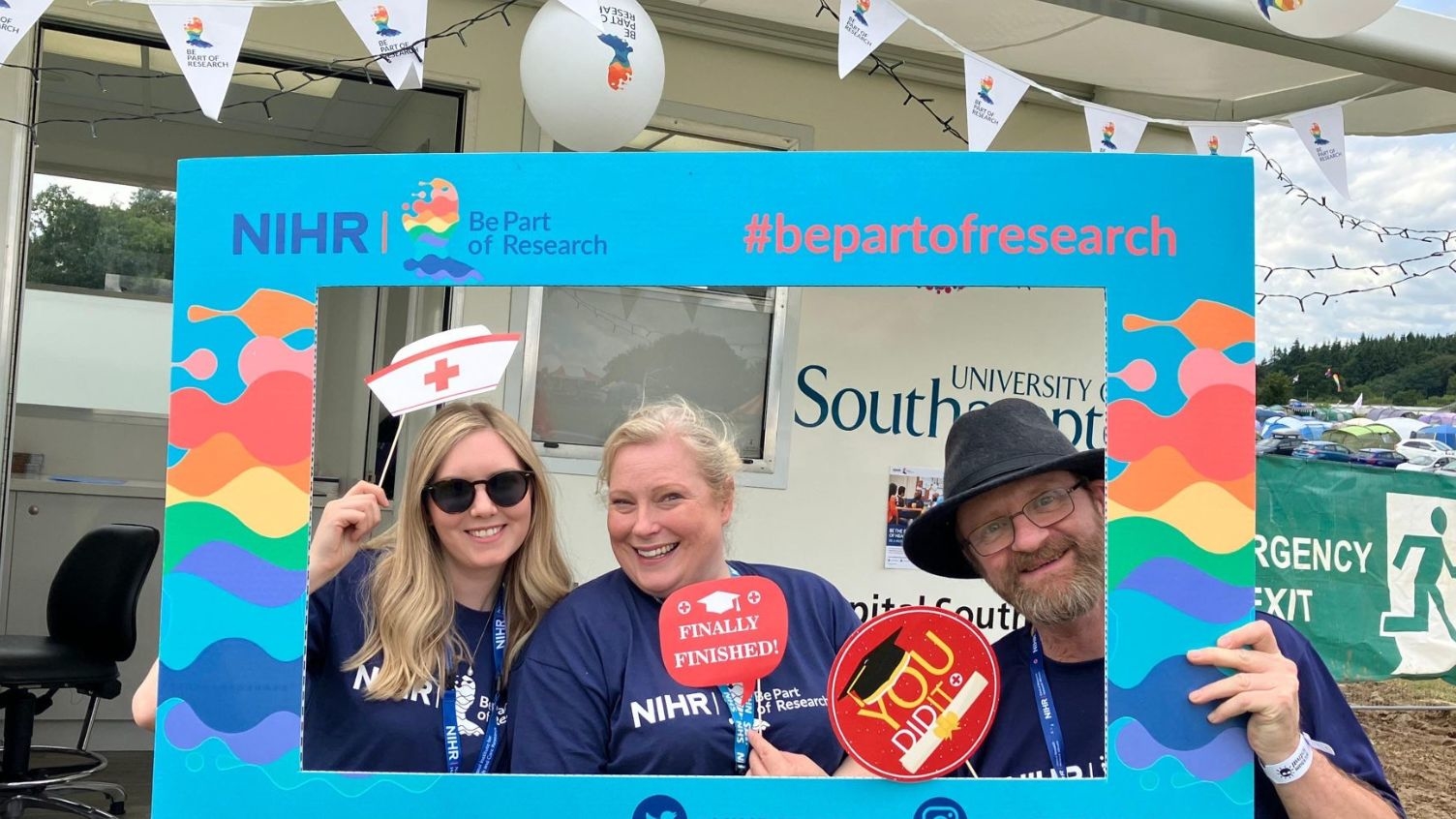South London writer urges people to support dementia research
- 21 September 2022
- 4 min read
To mark World Alzheimer's Month, CRN South London's Join Dementia Research Champion talks about how research can help in the fight against dementia.
Read Mary Stewart-David's research story.
To mark World Alzheimer's Month, CRN South London's Join Dementia Research Champion, Mary Stewart-David, talks about how research can help in the fight against dementia.
Dementia is a syndrome (a group of related symptoms) associated with an ongoing decline in brain function. There are many different causes of dementia and many different types.
Mary, 69, lives in Dulwich Village in south London with her husband Peter, with whom she has two children. She works as a writer and consultant narratologist, in fact, fiction, theatre, film and the digital realm.
She takes any opportunity to volunteer as a research participant. Mary said:
"I got involved in research as a volunteer because I saw my mother through dementia. She saw her mother through dementia, and I am aware that it might affect me in the future.
"We all need to get interested in research because it affects our lives. The most important thing to say about research is that prevention is better than cure. Don't wait till you get ill; let's find out how to stop you from getting ill."
According to Alzheimer's Research UK, one million people in the UK will have dementia by 2025. According to the NHS, the exact cause of Alzheimer's disease, the most common cause of dementia in the UK, is not fully understood.
The National Institute for Health and Care Research (NIHR) runs Join Dementia Research in partnership with Alzheimer's Research UK, Alzheimer's Society and Alzheimer Scotland.
Join Dementia Research aims to make a difference for people affected by dementia through research. It is a nationwide service that enables anyone aged 18 or over in the UK to find and take part in vital dementia research studies. People with dementia, their carers, and anyone interested in research can sign up.
Mary took part initially in a project aimed at identifying blood biomarkers of Alzheimer's disease at the Maudsley Hospital. Biomarkers are measurable changes in the body used to help predict, diagnose and monitor the progression of many conditions. Since then, Mary has taken part in several dementia research studies. She continued:
"In my experience, participating in dementia research is nearly always about doing cognitive tests on the computer. I get test anxiety and fail one section of the test because I'm hopeless with numbers and pattern recognition. However, it's harmless and doesn't hurt you to do a test on a computer. Sometimes you can ask for your results. It gives you reassurance if you come out with the same score every time."
Besides dementia research, Mary is also interested in research related to ageing and cognitive function and finds recent advancements in some areas of research fascinating and holding a lot of promise. As a researcher, Mary appreciates finding volunteers can be challenging. That's why whenever an exciting research opportunity presents itself within London, she agrees to take part.
Mary volunteered for the "Cognitive impairment in cerebrovascular disease" study. The study is investigating how cerebrovascular disease, such as stroke, affects brain function. The study is taking place at the NIHR Imperial Clinical Research Facility at Hammersmith Hospital. Mary said:
"I was invited to take part in this study that aims to understand why some patients with cerebrovascular disease have cognitive difficulties and what factors may worsen those difficulties. This research will ultimately help the researchers understand how to predict the trajectory of recovery of brain function and target interventions more precisely.
"I was invited to take part in the comparison group. My first visit consisted of a basic health check-up. A research nurse checked my height, weight, and blood pressure and took my medical history. Then I did a series of cognitive tests on the computer assessing language, thinking, attention, memory, calculating, motor skills, as well as my mood and daily activities. I will need to repeat the tests from home several times over three years.
"I had many questions about the study, such as what was the aim of the research? What was the nature of the cognitive tests I would be doing? How would my participation help? The study team were approachable and caring and explained everything to me in detail. I found the experience rewarding in many ways.
"It was interesting to learn about the nature of cognitive brain research, and I felt reassured that my brain was functioning normally. As a lay person, it is great to contribute to research that may benefit us all in time."
World Alzheimer's Month is an annual international event held in September and run by Alzheimer's Disease International. The month aims to raise awareness and challenge stigma surrounding Alzheimer's and dementia. Find out how you can contribute to tackling dementia and sign up on the Join Dementia Research website.


